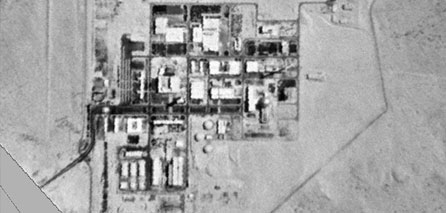U.S. satellites pick up Israeli nuclear tests

A British scientist announced that the U.S. Central Intelligence Agency (CIA) has evidence of Israeli nuclear testing, noting that a report of a sudden double flash detected by an American satellite was declassified in 2004.
Norman Dombey, a professor at the University of Sussex, wrote in the Guardian newspaper Friday in response to the questioning of Israeli nuclear tests, that a CIA report dating back to 1979 stated that a double flash, which is characteristic of nuclear explosions, was captured in the southern Atlantic Ocean by an American Vela satellite, which was launched to detect nuclear testing in the atmosphere.
The professor wrote that according to the CIA report, “In September 1979 some special security measures were put into effect which indicate that certain elements of the South African navy were exercising or on alert. The harbor and naval base at Simonstown were declared on 23 August to be off limits for the period 17-23 September … Also, the Saldanha naval facility was suddenly placed on alert for the period 21-23 September.”
“The Israelis might have conceivably foreseen needs for more advanced weapons, such as low-yield nuclear weapons that could be used on the battlefield. Or they might have considered desirable a small tactical nuclear warhead for Israel’s short-range Lance surface-to-surface missiles. Israeli strategists might even have been interested in developing the fission trigger for a thermonuclear weapon,” the report said.
If the Israelis developed such reliable nuclear weapons, they would certainly have needed to test them, so the evidence of Israeli nuclear experimentation is strong if not decisive, Professor Dombe said.







